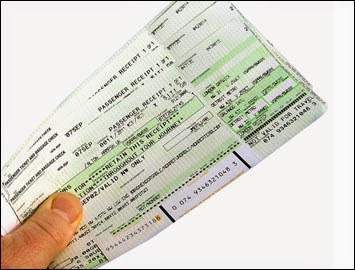The Transparent Airfares Act, one of the most contentious aviation industry bills ever put before Congress, was approved by the U.S. House of Representatives on Monday.
The measure would cancel out the 2012 rule that required airlines to post the full price of tickets, including airfare, taxes and government fees. The Transparent Airfares Act gives airlines the opportunity to advertise a low airfare and puts the responsibility on the consumer to determine the total price of the ticket with the taxes and fees.
The bill, however, still has to be approved by the Senate, where New Jersey Sen. Robert Menendez has already introduced his own legislation called the “Real Transparency in Airfares Act” that would levy heavy fines against airlines who engage in deceptive advertising.
The airlines and transportation unions, which backed the bill, were thrilled with the outcome.
“(Monday’s) vote is welcome news for airline customers who deserve to know how much of their advertised ticket price is due to rapidly increasing federal taxes,” said Airlines For American President and CEO Nicholas E. Calio, who heads the lobby group that represents virtually all the major airlines. “We applaud the leadership of Chairman Bill Shuster (R-PA), Ranking Member Nick Rahall (D-WV) and Reps. Peter DeFazio (D-OR), Frank LoBiondo (R-NJ), Rick Larsen (D-WA) and Tom Graves (R-GA) in making airfare more transparent by enabling travelers to clearly see how much of their advertised ticket price is in reality going to Washington in federal taxes.”
Others were clearly not so happy.
Charlie Leocha, Chairman of Travelers United (formerly Consumer Travel Alliance) said, “This misguided bill is unnecessary, since everything the bill purports to do for the airlines is already permitted by current rules except the ability to offer misleading and deceptive lowball airfare prices.”
Opponents were also miffed that Congress put the Transparent Airlines Act on its Suspension Calendar, which it traditionally uses right before its Summer Recess to pass bills that need little to no debate, such as the naming of a post office.
“The legislative process that the House followed was shameful. All consumer groups loathed H.R. 4156 as soon as they learned of it after it was voted out Committee,” said Business Travel Coalition chairman Kevin Mitchell. “It was a bill they never had the chance to critique in any sort of open hearings with the opportunity for the debate that is the customary and democratic process – and then a bill passed on the suspension calendar as if it were as non-controversial as the innocuous items placed on the suspension calendar with it.”
Steele Luxury Travel
www.SteeleTravel.com

